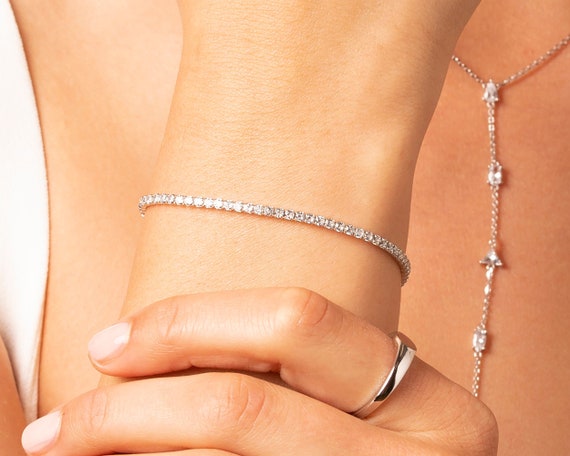
In the realm of luxury goods, diamonds stand as a symbol of beauty, elegance, and eternal love. However, the journey of a diamond from mine to market is often fraught with ethical concerns. Ethische diamanten represent a growing movement within the industry, aimed at ensuring that these precious stones are sourced in ways that respect both human rights and the environment. In this comprehensive guide, we will explore what makes a diamond ethical, the benefits of choosing ethical diamonds, and how you can ensure your next purchase supports responsible practices.
What Defines an Ethical Diamond?
Ethical diamonds are those that are mined, processed, and traded in ways that are socially and environmentally responsible. The key criteria that define an ethical diamond include:
Conflict-Free Sourcing
One of the primary concerns in the diamond industry is the issue of conflict diamonds, also known as blood diamonds. These are diamonds mined in war zones and sold to finance armed conflict against governments. Ethical diamonds are certified to be conflict-free, ensuring they do not fund violence or human rights abuses.
Fair Labor Practices
Ethical diamonds are mined and processed under conditions that respect workers’ rights. This includes fair wages, safe working conditions, and the absence of child labor. The goal is to ensure that the people who mine and cut these diamonds are treated with dignity and respect.
Environmental Stewardship
Mining can have devastating effects on the environment, including deforestation, soil erosion, and water pollution. Ethical diamond companies take steps to minimize their environmental impact through sustainable mining practices. This might include land reclamation, reducing carbon emissions, and responsible water management.
Transparent Supply Chains
Transparency in the supply chain is crucial for ensuring the ethical sourcing of diamonds. Ethical diamond companies provide full disclosure about the origins of their diamonds and the steps taken to ensure they are responsibly sourced. This transparency allows consumers to make informed decisions.
The Benefits of Choosing Ethical Diamonds
Choosing ethical diamonds offers numerous benefits, not only for the environment and communities involved in their production but also for consumers and the industry as a whole.
Supporting Human Rights
By opting for ethical diamonds, you support practices that uphold human rights and reject the exploitation of workers. This contributes to improving the lives of individuals and communities in diamond-producing regions.
Environmental Protection
Ethical diamonds are sourced using methods that minimize environmental harm. By choosing these diamonds, you are supporting efforts to preserve ecosystems verlobungsring konfigurieren, reduce pollution, and promote sustainable resource management.
Promoting Industry Transparency
When consumers demand ethical diamonds, it encourages greater transparency within the industry. This pressure can lead to broader changes in industry practices, promoting more responsible behavior across the board.
Peace of Mind
Knowing that your diamond was sourced responsibly allows you to enjoy your purchase without the moral concerns associated with conflict diamonds. This peace of mind enhances the emotional value of your jewelry.
How to Identify Ethical Diamonds
Navigating the diamond market to find ethical options can be challenging. Here are some tips to help you identify ethical diamonds:
Look for Certification
Reputable certifications can provide assurance that a diamond is ethical. Some of the most recognized certifications include:
- Kimberley Process Certification Scheme (KPCS): This certification aims to prevent conflict diamonds from entering the mainstream diamond market.
- Responsible Jewellery Council (RJC): Members of the RJC adhere to stringent ethical, social, and environmental standards.
- Fair Trade Diamonds: Fair Trade-certified diamonds ensure fair wages and safe working conditions for miners, as well as environmental protection.
Research the Retailer
Choose retailers known for their commitment to ethical sourcing. Companies like Brilliant Earth and Blue Nile have strong reputations for selling ethical diamonds and often provide detailed information about their sourcing practices.
Ask Questions
Don’t hesitate to ask questions about the origins of the diamonds and the retailer’s ethical policies. A trustworthy retailer will be transparent and provide the information you need.
Consider Lab-Grown Diamonds
Lab-grown diamonds are an excellent ethical alternative. They are physically and chemically identical to mined diamonds but are created in controlled environments, eliminating many of the ethical concerns associated with traditional diamond mining.
Ethical Diamond Brands to Consider
Several brands have made a name for themselves in the ethical diamond market. These companies prioritize ethical sourcing, transparency, and sustainability:
Brilliant Earth
Brilliant Earth is a leader in the ethical diamond industry, offering a wide selection of conflict-free and lab-grown diamonds. The company is committed to ethical sourcing and provides detailed information about the origins of its diamonds.
Blue Nile
Blue Nile offers both mined and lab-grown diamonds, with a strong emphasis on ethical sourcing. The company provides extensive education resources for consumers, helping them make informed decisions.
Fair Trade Jewelry Co.
This company specializes in fair trade-certified diamonds, ensuring that all aspects of the supply chain meet rigorous ethical standards. Fair Trade Jewelry Co. is dedicated to social responsibility and environmental sustainability.
Vrai
Vrai offers lab-grown diamonds that are sustainably produced. The company is transparent about its production methods and is committed to reducing its environmental footprint.
Conclusion
Ethical diamonds represent a positive shift in the diamond industry, promoting human rights, environmental sustainability, and transparency. By choosing ethical diamonds, consumers can enjoy their jewelry with the assurance that it was sourced responsibly. Whether you opt for conflict-free, fair trade, or lab-grown diamonds, your choice can make a significant impact.

